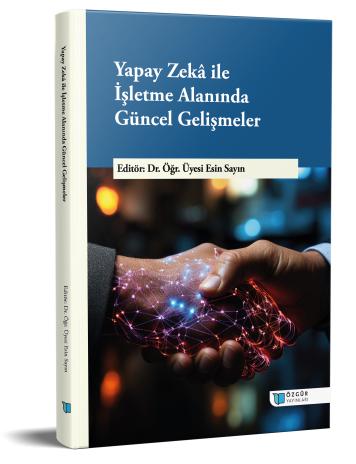
The Digital Transformation of Islamic Finance: Smart Sukuk, Tokenization, and Artificial Intelligence Applications
Chapter from the book:
Sayın,
E.
(ed.)
2025.
Current Developments in Business with Artificial Intelligence.
Synopsis
This chapter explores the theoretical and practical intersections of Smart Sukuk, tokenization, and artificial intelligence (AI) applications within the digital transformation of Islamic finance. These emerging technologies play a critical role in enhancing transparency, accessibility, and Shariah compliance in Islamic capital markets. Smart Sukuk models, supported by blockchain and distributed ledger technologies (DLT), address issues such as high transaction costs, intermediary dependency, and information asymmetry inherent in traditional sukuk structures. Tokenization allows for broader investor participation by offering digital representations of assets, while AI-powered systems improve the accuracy and efficiency of sukuk pricing, credit rating, and risk analysis processes. This study assesses the digitalization process of Islamic finance from multiple dimensions. It also evaluates the compatibility of digital financial instruments with Shariah principles, financial inclusion, and social justice objectives. The findings highlight persistent regulatory gaps and a lack of normative frameworks regarding ethical algorithmic design in the Islamic FinTech ecosystem. By synthesizing current research trends, this chapter contributes to the scholarly discourse and provides strategic insights for regulators, practitioners, and policymakers. It lays a conceptual foundation for future empirical studies, including case analyses, algorithmic Shariah compliance, and comparative FinTech regulations, thus supporting the institutionalization and sustainability of digital Islamic finance.

